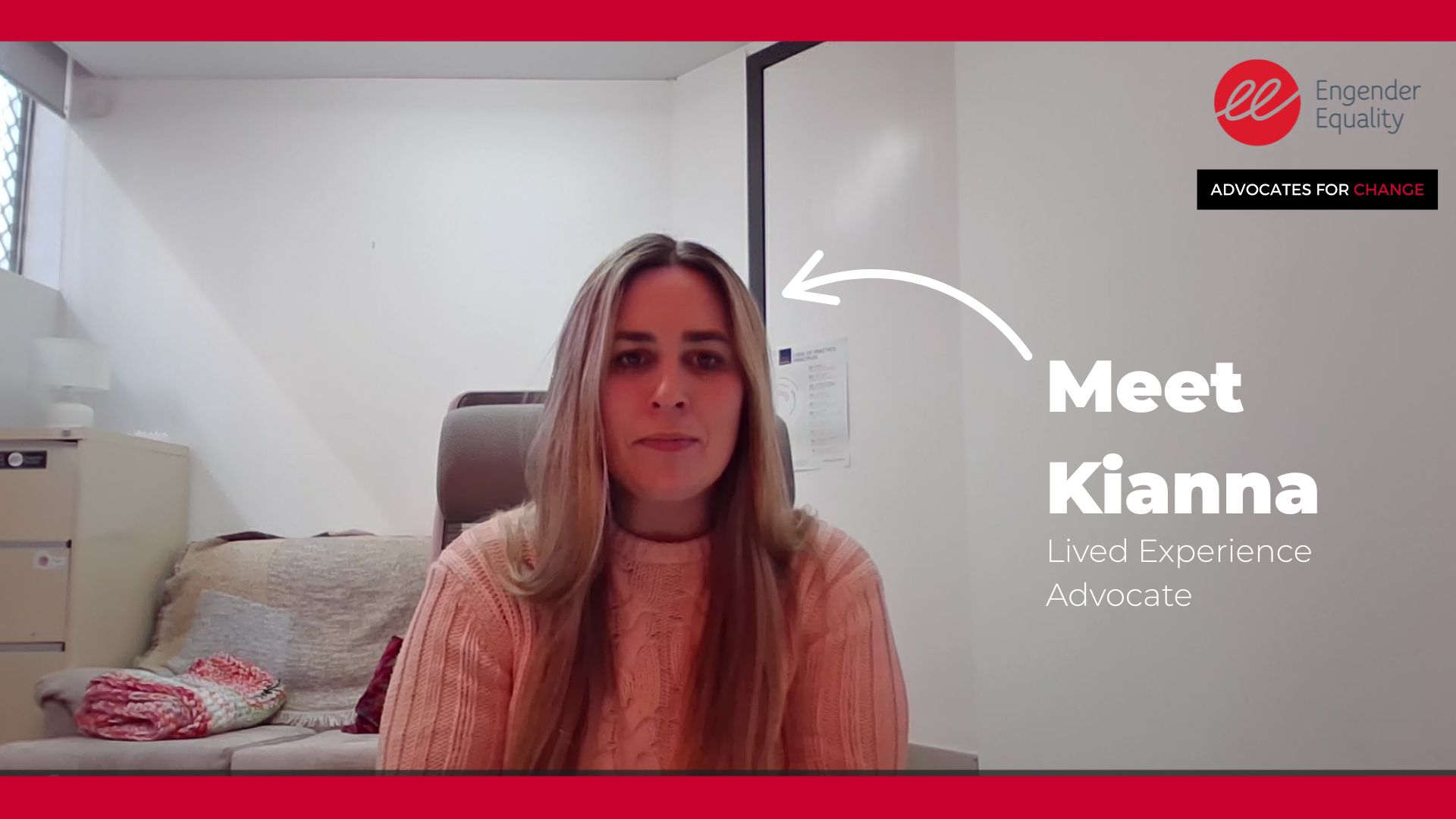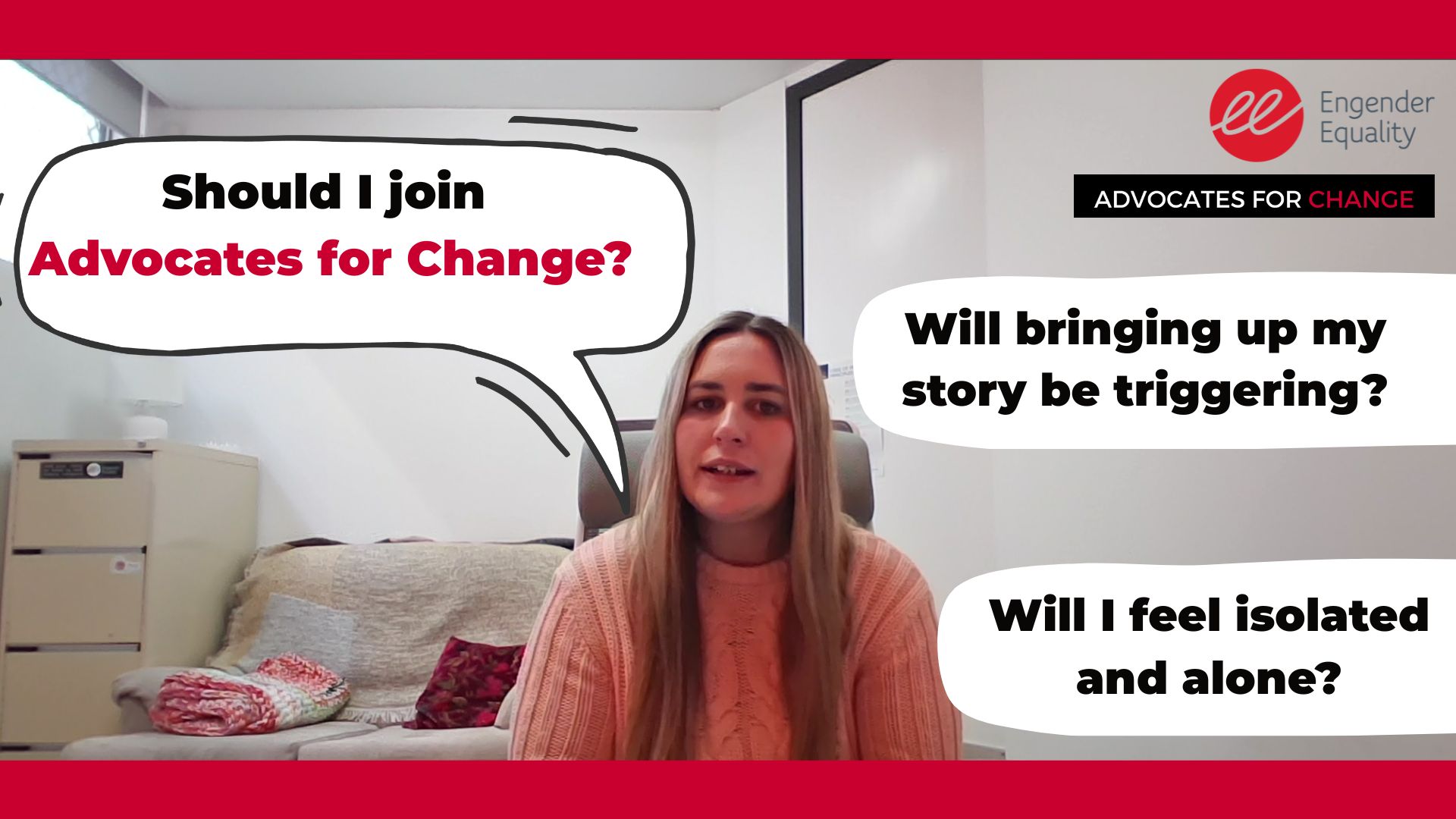Artwork and communications - 16 days of activism 2025 - UNiTE to end digital violence against all women and girls
As part of the 16 Days of Activism to end Gender-based Violence, Engender Equality launched an online campaign presenting artwork which raised awareness of the impacts of digital abuse and the urgent need for accountability and change.
Thank you to our incredible volunteer, Akhila Shaha for collaborating with us to channel her art into a powerful awareness raising tool.
Video - Advocates for Change - Meet Kianna
Like many women in Australia, Kianna has experienced family violence and sexual assault. She has also been to prison.
Kianna has joined the Advocates for Change program because she believes that women who have survived violence do have a voice. She believes that they can come together and create change for all victim-survivors.
Kianna is doing a series of videos to answer some of the thoughts and concerns you may have before joining us in advocacy.
You are not alone. Your experiences matter. You have the right to feel safe, to be supported.
Video - Will bringing up my story be triggering?
If you are a victim-survivor of family violence and have been to prison, our advocacy program is for you!
We understand that you may have some questions or concerns about becoming an advocate. You are not alone.
In this video, Kianna explores her first question – Will brining up her story be triggering/ Will she feel alone and isolated?
Video - How much of my story will I have to share?
If you are a victim-survivor of family violence and have been to prison, our advocacy program is for you!
We understand that you may have some questions or concerns about becoming an advocate. You are not alone.
In this video, Kianna talks about how much you will have to share as an advocate to end gender-based violence.
Video - What about confidentiality and privacy?
If you are a victim-survivor of family violence and have been to prison, our advocacy program is for you!
We understand that you may have some questions or concerns about becoming an advocate. You are not alone.
In this video, Kianna talks about how you have the choice to reveal or conceal your identity. We are guided by you.
Video - What if sharing my story pulls me back into a life I've left behind?
If you are a victim-survivor of family violence and have been to prison, our advocacy program is for you!
We understand that you may have some questions or concerns about becoming an advocate. You are not alone.
In this video, Kianna addresses a concern she has had, “What if sharing my story with the world leads me back to a lifestyle I have overcome such as going back to prison or active addiction?”
Video - What if I am blamed, judged or criticised?
If you are a victim-survivor of family violence and have been to prison, our advocacy program is for you!
We understand that you may have some questions or concerns about becoming an advocate. You are not alone.
In this video, Kianna talks about her concerns around being blamed for the abuse she endured, and being judged and criticised for speaking up.
Video - Will telling my story make a difference?
If you are a victim-survivor of family violence and have been to prison, our advocacy program is for you!
We understand that you may have some questions or concerns about becoming an advocate. You are not alone.
In this video, Kianna discusses how sharing your story will make a difference.
News item - ABC Lifestyle: How Amanda's ex used technology to gaslight and abuse her
By Kellie Scott
Posted to ABC Lifestyle, 26/11/25
The use of technology to perpetrate violence against women is a rapidly growing problem.
Amanda’s husband had been using coercive control for many years. The discovery of technology-facilitated abuse left her feeling violated and alone.
News item - The Mercury - Family violence delays
By Sue Bailey
Posted to The Mercury, 09/11/25
A great article by Sue Bailey at The Mercury on Sunday talking about the annual Tasmania Police report showing an increase of 1,125 incidents of family violence between 2023 and 2024.




